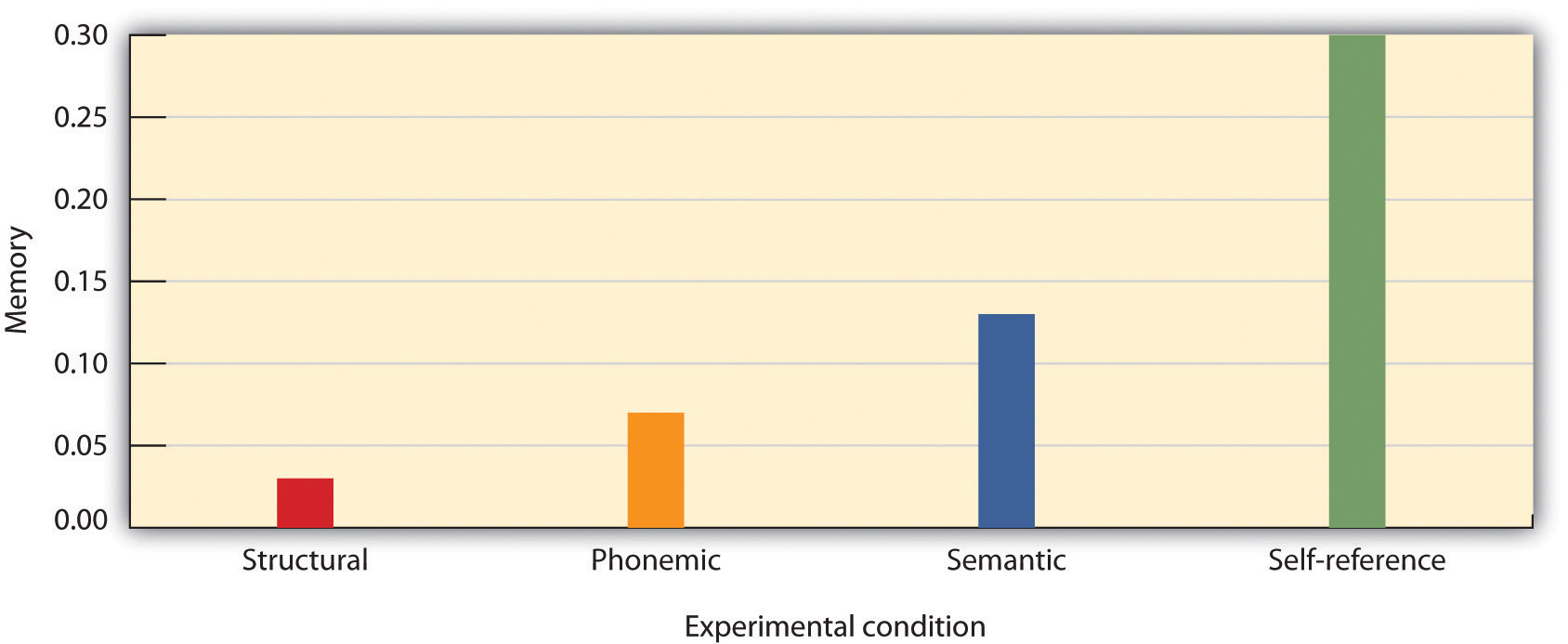Dalia Savy
Sadiyya Holsey
AP Psychology 🧠
334 resourcesSee Units
There are three steps in creating a new memory—encoding is the first! Encoding is the process of sensing information, processing the information and storing it to be retrieved later.
Processing Information Model
According to this model, there are three different levels of processing information:
👀 Visual Encoding
Visual encoding is the process of remembering visual images. Visually encoded information is forgotten easily, therefore, it's the most shallow type of processing.
An example of visual encoding would be trying to remember a list of words with each word only being shown for a second. You would be able to remember if there was a word written in red ink or written with all capital letters 🅰️
👂 Acoustic Encoding
Acoustic encoding is the processing and encoding of sound. It's deeper than visual encoding, but not as deep as semantic encoding. You could think of it as intermediate processing.
An example of acoustic encoding would be remembering a slogan to a famous commercial, or even knowing the lyrics to a song that you enjoy 🎵
🧠 Semantic Encoding
Semantic encoding is when a word, phrase, picture, etc. is encoded on the basis of meaning rather than the sound or vision of it. Studies show that people have a better memory when using semantic encoding, since it's the deepest level of processing.
Putting this in a table:
| Encoding Type | Processing Type | Definition | Example |
| Visual Encoding | Shallow | Remembering the way something looks | If words stood out in a different color or size |
| Acoustic Encoding | Intermediate | Remembering the way something sounds | Catchy Commercial Slogan |
| Semantic encoding | Deep | Remembering something by its meaning | Soccer is a sport⚽ |
Enhancing Encoding
We can enhance how well we remember something by rehearsing the information.
Maintenance Rehearsal
Maintenance rehearsal is the process of repeatedly thinking about or verbalizing a certain piece of information.
For example, you may not remember the phone number of your favorite takeout restaurant. So you ask your friend near you for the number (they have it memorized). Then, you keep repeating it to yourself until you are able to reach the phone and dial the number.
Elaborative Rehearsal
Elaborative rehearsal is the process of using active thinking about the meaning of the term that needs to be remembered rather than just repeating the word/information over and over again.
For example, if you want to remember the term “hippocampus” you would first look up what it means. Then you find its purpose, look at a diagram, and study it. Then, you think about how the term relates to the things you already know.
Self-Reference Effect
When you apply a situation to yourself, you are more likely to remember what the situation is. For example, if you are studying for AP Psychology and word sensory adaptation comes across in your notes, you could think about where you experienced it.
Maybe that morning you went outside and smelled the grass, but a few minutes later, the smell was gone. This will help you remember the term and makes the memory more durable.
Relevant information is processed more deeply and it remains more accessible (you can recall it quickly).

Image Courtesy of Usask.
Imagery
Another study tip! If you're reading about an experiment 🧪, try picturing the experiment in your mind. Creating visual images in your mind as you study always helps with memory as well.
💡TIP—Whenever the meaning of a term is mentioned, you should automatically think of deep processing.
🎥 Watch: AP Psychology - Cognition + Memory
Browse Study Guides By Unit
🔎Unit 1 – Scientific Foundations of Psychology
🧠Unit 2 – Biological Basis of Behavior
👀Unit 3 – Sensation & Perception
📚Unit 4 – Learning
🤔Unit 5 – Cognitive Psychology
👶🏽Unit 6 – Developmental Psychology
🤪Unit 7 – Motivation, Emotion, & Personality
🛋Unit 8 – Clinical Psychology
👫Unit 9 – Social Psychology
🗓️Previous Exam Prep
📚Study Tools
🤔Exam Skills

Fiveable
Resources
© 2025 Fiveable Inc. All rights reserved.